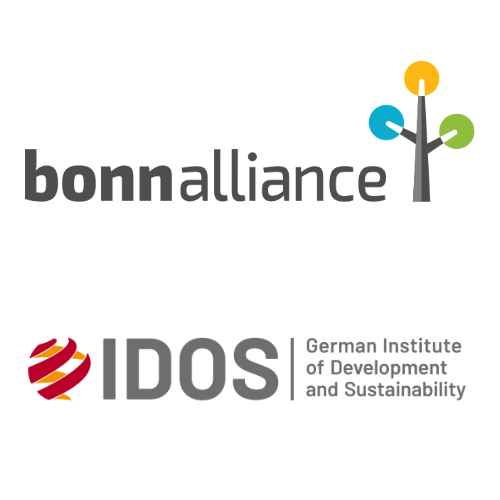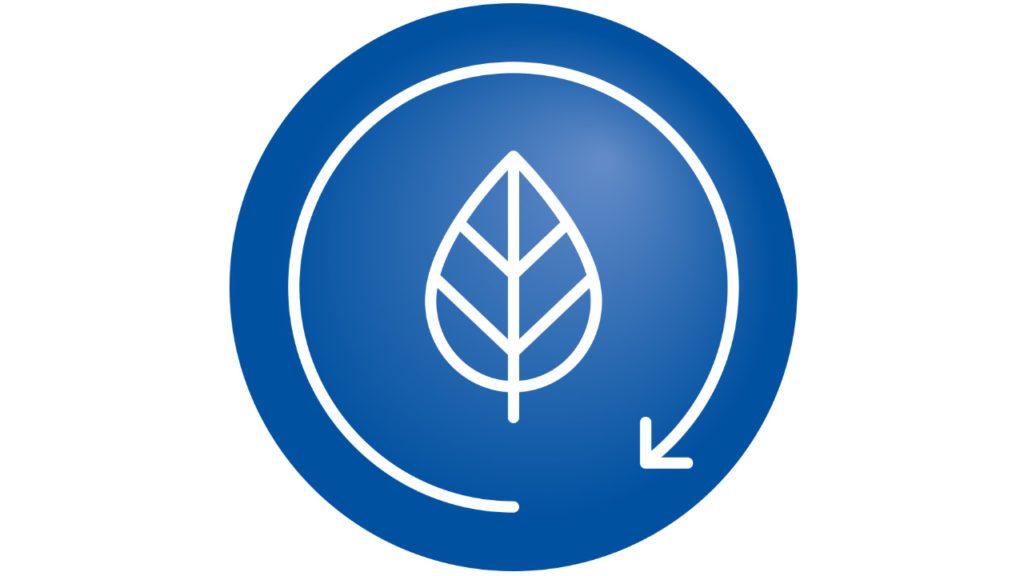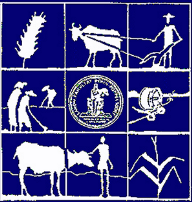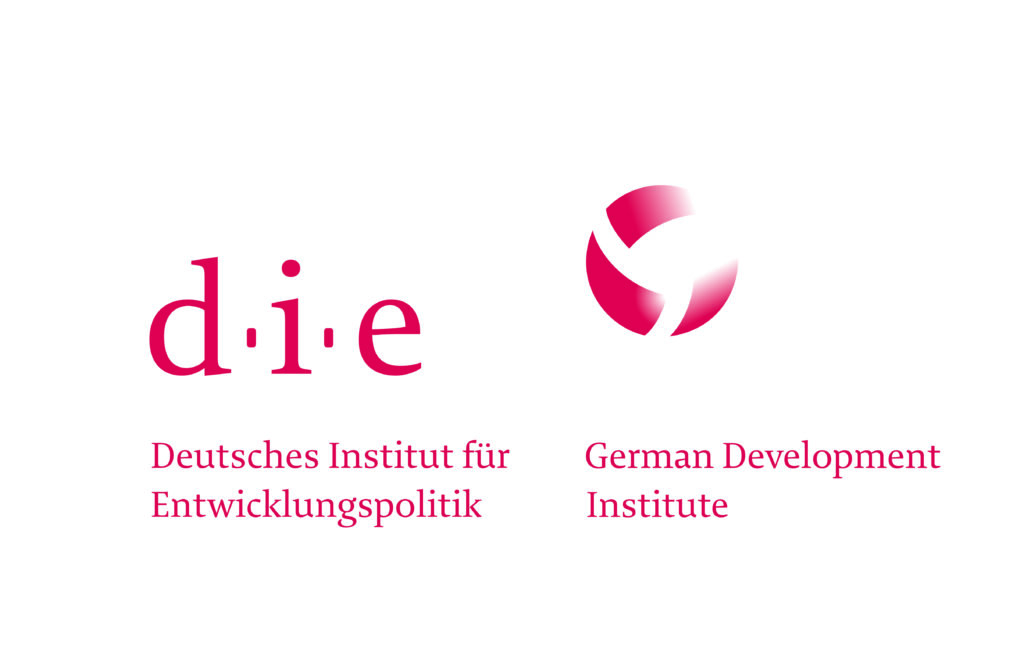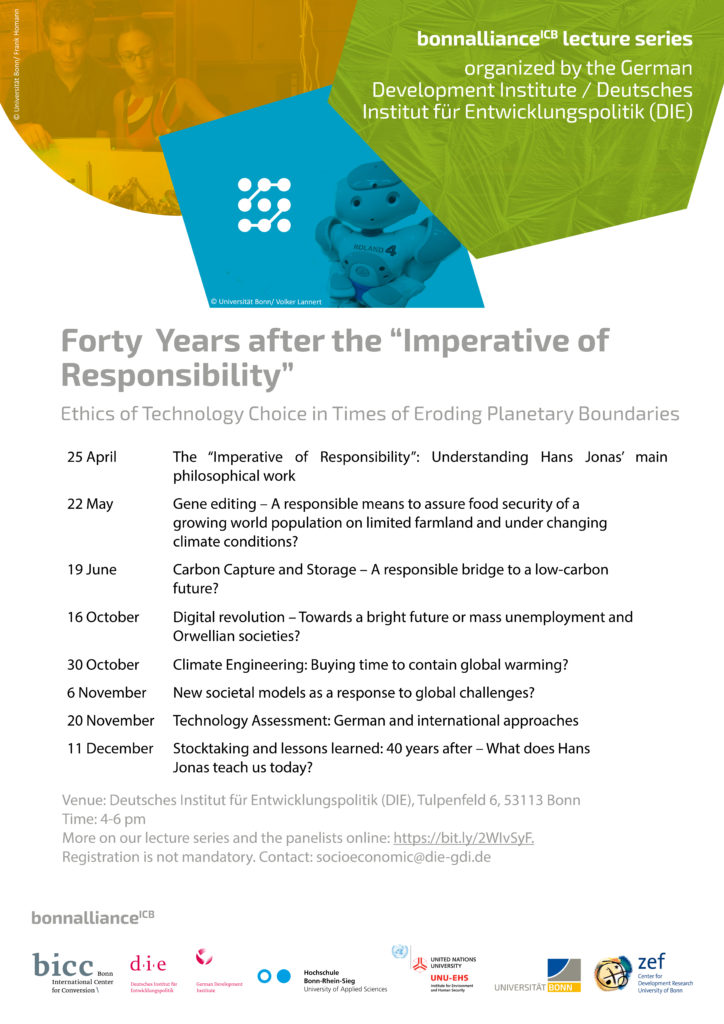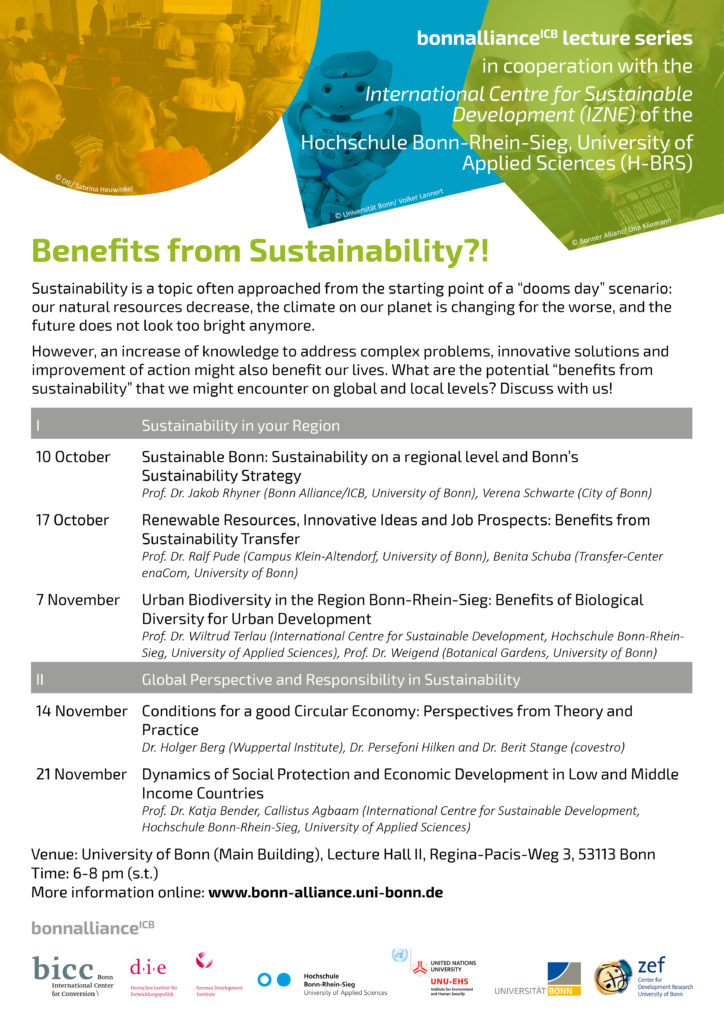starting June 2, 2022, organized under the umbrella of the Bonn Alliance for Sustainability Research within the prgram line „Sustainability – Looking Beyond 2030“ in cooperation with the German Institute of Devleopment and Sustainability (IDOS).
The lecture series „50 years „The Limits to Growth“ – Prospects in 1972 and 2022″ is being organized on the occasion of the 50th anniversary of “The Limits to Growth” report to the Club of Rome (1972) hosted by the Bonn Alliance for Sustainability Research with its partner institution the German Institute of Devleopment and Sustainability (IDOS). The lectures take on central issues of the report, such as agriculture, natural resources, energy, technological innovations and the science of foresight.
The hybrid opening event “Limits to Growth – Can the Anthropocene become sustainable?” took place on June 2, 2022 at ZEF. Ernst Ulrich von Weizsäcker, German environmental scientist and Co-President of the Club of Rome between 2012 and 2018, spoke about the genesis of and controversies surrounding the report for the Club of Rome “The Limits to Growth”.
The second event took place on November 21, 2022 as part of the event
“50 Jahre Grenzen des Wachstums” (“50 Years of ‘Limits to Growth'”) at IDOS organized by the Johannes-Rau-Forschungsgemeinschft (JRF) with the Wuppertal Institute, EWI and IDOS in cooperation with Bonn Alliance.
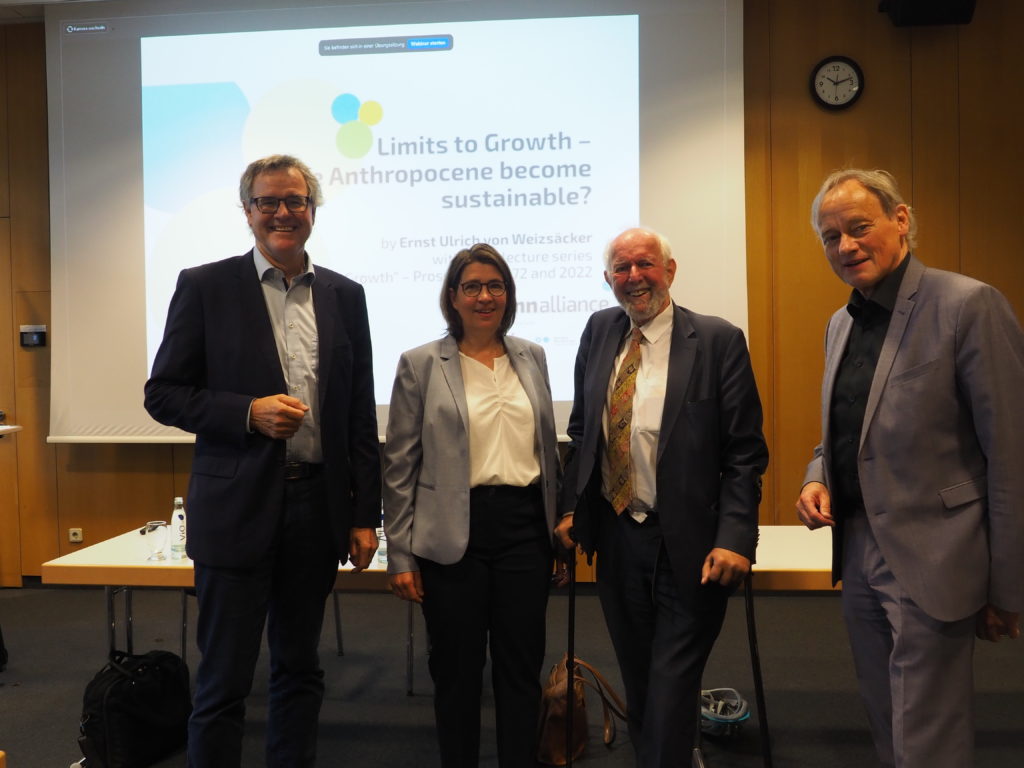
f.r.t.l. Jakob Rhyner (Bonn Alliance), Anke Rasper (Deutsche Welle), Ernst Ulrich von Weizsäcker, Hartmut Ihne (Hochschule Bonn-Rhein-Sieg) at the Opening Event on June 2, 2022
starting November 14, 2019, organized by TRA Sustainable Futures of the University of Bonn.
The Transdisciplinary Research Area Innovation and Technology for Sustainable Futures (TRA) at the University of Bonn offers a lecture series on topics related to innovation and sustainability.
The lecture series is a forum for high-profile and internationally visible scientists* working in academia or at the interface between science and policy. The lectures are aimed at an interdisciplinary audience of experts from the natural, social and engineering sciences as well as representatives of international and implementation-oriented organizations.
In semesters, organized by Agricultural Sciences and Resource Management in the Tropics and Subtropics (ARTS) of the Agricultural Faculty of the University of Bonn.
Find the current dates for the winter semster 2021/22 here.
Past Lecture Series
April 25 until December 11, 2019 (8 lectures), organized by Dr. Andreas Stamm, German Devleopment Institute / Deutsches Institut für Entwicklungspolitik (DIE), supported by the Head Office of the Bonn Alliance
Forty years ago, Hans Jonas’ main work “The Imperative of Responsibility” (German original: “Das Prinzip Verantwortung”) was first published. Starting from the perspective of moral theory, he develops fundamental thought on a responsible approach to deal with new technologies, and especially “disruptive innovations”, as one would put it today. His work is driven technological progress which has amplified the reach of human action to a degree that calls for a new philosophy of responsibility. With technological progress, actions brought about at a singular point in space and time may have far-reaching or even global consequences.
40 years have passed. Since 1979, the number of people living on the globe has increased by 3 billion and the percentage of absolutely poor people decreased from 40% to 10%. Planetary boundaries are being transgressed not (only) by single catastrophic events in a novel technological system, but (also) by the progressive erosion of ecosystems – in order to satisfy the needs of a growing and increasingly well-off world population. Technologies and innovations play a crucial role in this new global setup. Do we need a new “ethics of responsibility”, new approaches to radical innovations, maybe combined with novel modes of technological impact assessment and foresights?
October 10 to November 21, 2019 (5 lectures) in cooperation with the International Centre for Sustainable Development (IZNE) of the Hochschule Bonn-Rhein-Sieg, University of Applied Sciences (H-BRS), supported by the Head Office of the Bonn Alliance

Sustainability is a topic often approached from the starting point of a “dooms day” scenario: our natural resources decrease, the climate on our planet is changing for the worse, and the future does not look to bright anymore. Shifting the course of action towards sustainability appears as last resort and something one simply must do. However, an increase of knowledge to address complex problems, innovative solutions and improvement of action might also benefit our lives.
What are the potential “benefits from sustainability” that we might encounter on global and local levels?

